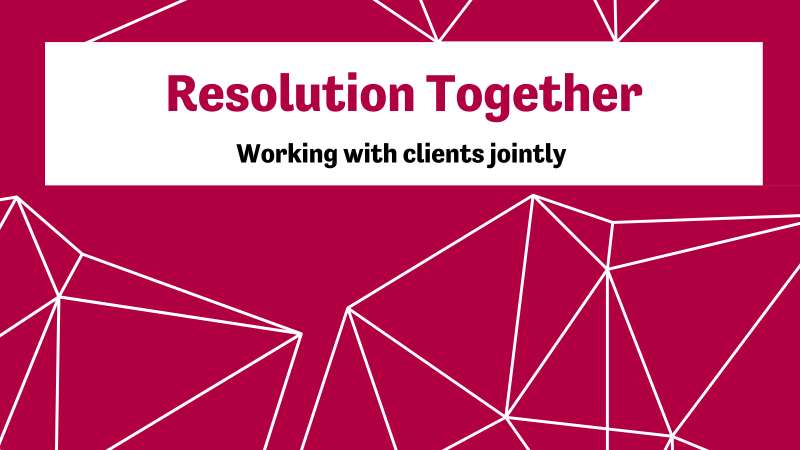
Resolution Together, a new way of working that allows lawyers to work with and advise both parties to a separation, was launched by Resolution on 28th June 2022. Since then, we have seen a steady rise in the number of clients asking about Resolution Together.
Resolution Together allows a separating couple to be advised by the same legal professional or a team coordinated by that single professional. It has totally changed the legal landscape for couples who want to manage their separation or divorce together.
It is a model that is only suitable for those whose objective is to reach an outcome together, the outcome that best meets their needs and, if relevant, the needs of their children without conflict.
A key feature of Resolution Together is that the individuals must give their permission for all their relevant factual and financial information to be disclosed to the legal professional advising them and guiding them towards their final desired outcome. The advice provided to each party by that professional is also shared.
Conversely, it is a model that is unsuitable for couples with a history of abuse, safeguarding or capacity concerns or mental or emotional health issues. It would also be unsuitable where one party is unwilling to negotiate openly with the other or if one party believes the other will deliberately try to hide information or finances.
It is probably also unsuitable if the case involves more complex areas of law, for example a multi-jurisdictional aspect, international relocation or the risk of child abduction or pre-nuptial agreements
There are similarities between the Resolution Together model and other methods of alternative dispute resolution like mediation.
The difference is with Resolution Together, couples receive an advice-based service where both parties receive advice in a very open way that will benefit both of them. This works because, generally speaking, those who choose to go down the Resolution Together route will not be in a dispute or conflict. This makes facilitating and open, productive conversation easier.
The couple’s appointed legal professional will give the advice they need, possibly incorporating additional advice from other lawyers in their team, so the couple can reach a joint decision that will then be recorded in a draft order. The parties are informed with information and advice before making their decisions. The legal professional will then assist them to obtain an approved order.
Alternatively, a mediator can only give legal information. They do not provide advice Parties should seek the assistance of a separate legal professional to formalise and make binding any agreements reached. This will incur costs and cause delay.
If you would like to explore the Resolution Together model or speak to one of our hugely experienced family law team to find the best option for your divorce or separation, please contact Aisling Collins or Bernadette Hoy today.